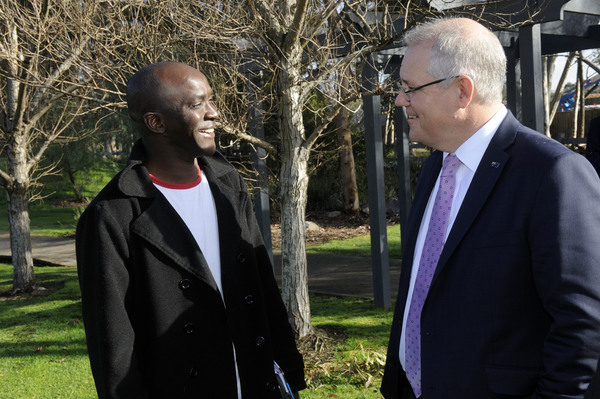
By Rowan Forster and Kyra Gillespie
Prime Minister Scott Morrison has blamed the State Government’s responsibility for burgeoning crime rates and gang problems in Melbourne’s south-east.
Speaking to the Gazette about law and order in Pakenham, Mr Morrison revealed he was open to the prospect of an Australian Federal Police task force being established across Casey and Cardinia.
He said the area is suffering from a crime epidemic that does not exist in his home state of New South Wales.
“All cities have their challenges with communities, Sydney we have our challenges, but we don’t seem to have the problems that exist here in this part of Melbourne,” he said.
“We have a very high settlement of people of particular ethnic communities.
“It’s the same people, the same places, but there just seems to be an issue here.
“At the end of the day it’s the responsibility of the State Government.”
It comes after dozens of African-Australian youths involved in several raucous riots were identified as being from Pakenham.
“It’s up to the State Government to ensure that Victoria Police is very much a ‘force’, like it is in other states,” the PM added.
Latrobe MP Jason Wood, who has been outspoken about the ‘African gang’ epidemic facing the south-east suburbs, claimed resources were particularly strained.
“Local police in Pakenham are very much understaffed,” he said.
“This is why I have developed the policy for the National Gangs Taskforce and I am fighting to cancel visas of violent thugs.”
Countering Mr Wood’s hard-nosed approach, Ugandan-born Australian Jafri Katagar spoke with the Prime Minister during his visit about forming a soccer academy in Pakenham to engage young migrants.
The self-proclaimed anti-racism campaigner famously protested outside Flinders Street Station holding a ‘Stop Racism Now’ sign in 2016.
He now has his sights set on steering youth away from crime.
“The soccer academy will be a platform for young migrants to get an opportunity to play for big Australian or European soccer clubs,” Mr Katagar said.
“It will keep them busy and active and away from the streets, committing crimes or becoming involved in gangs.
“If a young migrant is not at school that young migrant should be working. What if that young migrant is not working and also not at school? They should be doing some kind of a sport or activity to keep them busy.
“We cannot have young migrants staying idle and without hope or sense of direction, otherwise they will end up going astray.”







